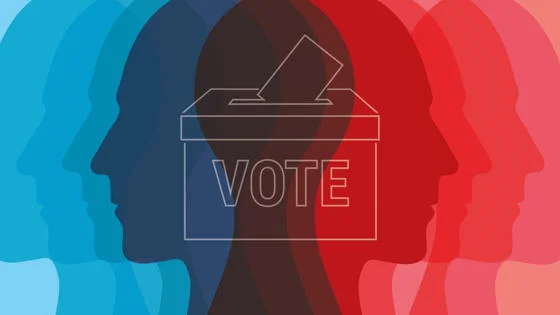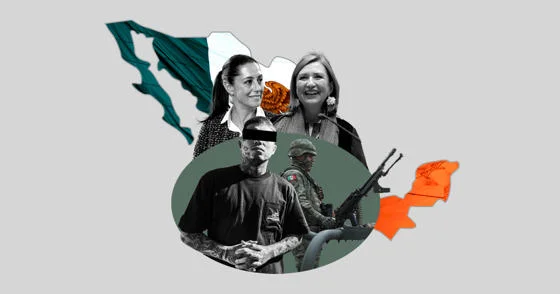Differences in opinion, growing hostilities or politics as usual?

Contents
In the run up to the 2019 General Election in the UK, the atmosphere could be characterised as frustrating, hostile and divisive. And indeed it was experienced as such by large parts of the population, with LSE research identifying an alarming level of animosity towards both politicians and fellow voters.
Negative feelings about the electoral process, the people who represent the electoral system and fellow citizens who might vote differently have important consequences for the health of a democratic system. These feelings also lead to "softer" questions around social relations, community building and cohesion across political ideologies and divides.
The UK referendum, unlike general elections, cut across traditional political party divides and created new, opinion-based groups.
With increasing polarisation emerging across diverse socio-political contexts, it is important to ask how we understand the political views of those who think differently to us and how this understanding may harden group boundaries. In other words, how do individuals understand the political perspective of those who vote differently and what are the implications of this for group relations?
Divisive politics have impacted on how individuals feel about society
Arguably, in the UK, the most recent example of divisive politics comes from the Brexit vote in 2016 and its aftermath. At the Electoral Psychology Observatory (EPO), we examine how these examples of divisive politics are experienced and felt by the people who make up the electoral voting body.
Our work ranges from thinking about optimising polling stations and electoral ergonomics to examining and measuring how emotions permeate political processes. Through this, we aim to create electoral systems and atmospheres that are more inclusive and less frustrating.
As part of this, the EPO, alongside Insight Agency Opinium, has developed a Hostility Barometer for both UK and US electoral politics. These barometers track the negative feelings that citizens hold towards those who vote differently from them and how they feel about the broader political atmosphere.
The work I have been doing, and will continue to do alongside the EPO, focuses on how electoral processes and atmospheres, including the emotions they elicit and the implications they have for intergroup relations, are constructed through communication.

When discussions around politics move from being framed as differences in political opinions, to differences in personality, we begin to see a hardening of group boundaries and emerging identities.
What can we learn from the UK referendum?
In examining how individuals who voted the same engaged with the views of those who voted differently, a recent project of mine has focused on analysing the communication mechanisms through which we acknowledge differences in perspective, and use these to construct group boundaries. In particular, I’m exploring this through separate focus groups with Remain and Leave voters.
What was so interesting about the UK referendum was that, unlike general elections, it cut across traditional political party divides and created new, opinion-based groups which became known as "Remainers" and "Leavers".
To explore how Remain and Leave voters engage with each other, I’m focusing on how meta-representations are expressed. Meta-representations refer to the beliefs, values and ideas that we attribute to others around us. These are often oversimplified caricatures, but they serve an important role in enabling dialogue around different points of view. These can include the broader social environment - what we perceive to be the "social norm" of the general public. However, they can also refer more specifically to the beliefs and values we attribute to other groups, from which we differentiate ourselves.
In analysing group discussions, we have been able to show how engaging with meta-representations both delegitimises the political decisions of those who voted differently but also aids in constructing the in-group as more knowledgeable and "right".
Group discussions, rhetoric and exposure to different opinions
In social environments where we are constantly exposed to different opinions and perspectives, this research shows some of the ways we are able to acknowledge the existence of these other opinions, while limiting their ability to alter our point of view.
In the context of group discussions, different rhetorical strategies function to achieve this. For example, one strategy people use is undermining the motive behind a group’s decision to vote a certain way (ie, "they didn’t genuinely think it was going to happen" – Remain voter discussing Leave voters). Another strategy people often use is stigmatising people who are seen to hold a particular opinion, questioning their ability to make informed decisions (ie, "they voted out of fear" – Leave voter discussing Remain voters).
This subtle move from "this is what they think" to "this is who they are" has important implications for how we move forward as a united and cohesive society after a divisive election is over. When discussions around politics move from being framed as differences in political opinions, to differences in personality, we begin to see a hardening of group boundaries and emerging identities.
With rising polarisation among populations around the world, it is now more important than ever to understand how and why we engage with others’ opinions. Through developing the Hostility Barometer and qualitative insights alongside it, we hope to identify trends and solutions that will enable us all to have more balanced discussions in the future, and more enjoyable experiences of electoral processes.
Download a PDF version of this article




